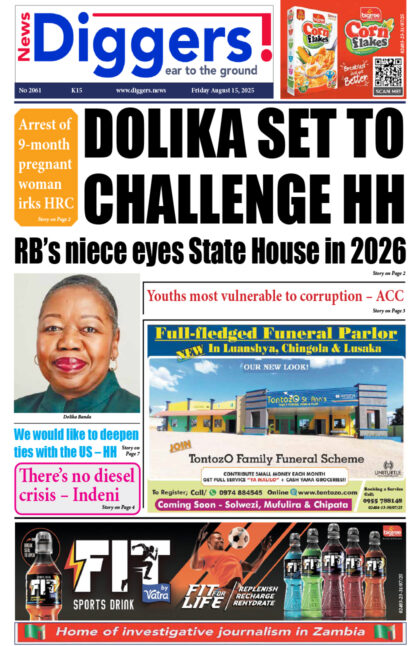The number of inmates being held by the Zambia Correctional Services in Lusaka has continued to rise, standing at 3,200 against a holding capacity of 1,217 as at January 6, 2020.
And the Zambia Correctional Services has complained that there is inadequate land in Lusaka for farming activities, making it difficult to grow enough food for inmates.
Paul Simasiku, the deputy commissioner, Regional Commanding officer for Lusaka Region, said overcrowding in correctional facilities was also another challenge.
Giving a goal delivery before High Court judge Ruth Chibbabbuka during the opening of the criminal sessions for the Lusaka High Court for 2020, Simasiku said Lusaka Central correctional facility had the highest number at 1,152.
“The break down is as follows; Lusaka Central Correctional Facility, 1,152, Lusaka Remand Facility 649, Mwembeshi Farm Correctional Facility 346, Mwembeshi Maximum Correctional Facility 800, Chainama East Correctional Hospital 133, Lusaka Central Female Correctional Facility 120, bringing the total to 3,200 as at today (yesterday) 06:30 hours,” Simasiku said.
He further said Lusaka had serious challenges of over-crowding in correctional facilities as the holding capacity was 1,217 against the 3,200 inmates currently being held.
“We have some challenges within the region. The first challenge is overcrowding. As you can see, we have 3,200 as per today. But the holding capacity for the correctional facilities within Lusaka is 1,217. You can see, the number is doubled, meaning there is congestion within our facilities,” Simasiku said.
He further lamented that they had challenges in finding land for farming activities in Lusaka to produce food for inmates.
“My Lady, we also have some challenges in our farming activities. In Lusaka Province, we have no adequate land, making farming activities to feed ourselves very difficult. Currently, we have cultivated very minimal hectares. For example in Mwembeshi, we have 50 hectares. We are supposed to go up to maybe 300 to 400 hectares,” Simasiku said.
He also complained that transport was not adequate to cater for their daily activities.
Simasiku further said sessions at the Subordinate Court were ending as late as 18:00 hours, when locking up time for inmates was 15:00 hours so that officers in charge can make a final report for the day.
He added that this was a security risk to the officers and the entire service as the number of inmates, which was 3,200, was overwhelming compared to the number of officers.
“…At 17:00 hours they are supposed to give a final report. But we have this challenge, which again brings a security risk both to the institution and officers themselves. As you can see, the ratio between officers and inmates is too high,” said Simasiku.
























